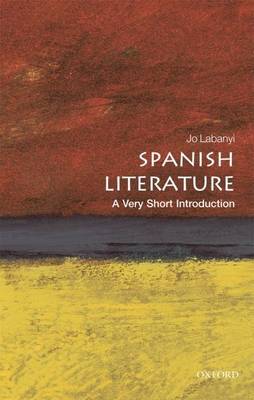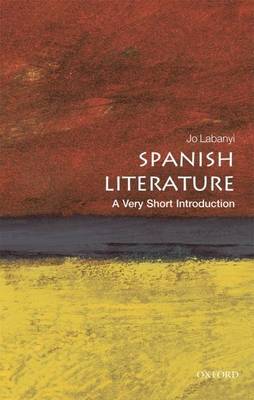
Door een staking bij bpost kan je online bestelling op dit moment iets langer onderweg zijn dan voorzien. Dringend iets nodig? Onze winkels ontvangen jou met open armen!
- Afhalen na 1 uur in een winkel met voorraad
- Gratis thuislevering in België vanaf € 30
- Ruim aanbod met 7 miljoen producten
Door een staking bij bpost kan je online bestelling op dit moment iets langer onderweg zijn dan voorzien. Dringend iets nodig? Onze winkels ontvangen jou met open armen!
- Afhalen na 1 uur in een winkel met voorraad
- Gratis thuislevering in België vanaf € 30
- Ruim aanbod met 7 miljoen producten
Zoeken
Omschrijving
Spanish literature has given the world the figures of Don Quixote and Don Juan, and is responsible for the "invention" of the novel in the 16th century. The medieval period produced literature in Castilian, Catalan, Galician, Latin, Arabic, and Hebrew, and today there is a flourishing literature in Catalan, Galician, and Basque as well as in Castilian--the language that has became known as "Spanish." Moreover, a multilayered history of exile has produced a transnational literary output, while writers in Spain have engaged with European cultural trends. This Very Short Introduction explores this rich literary history, which resonates with contemporary debates on transnationalism and cultural diversity. The book sheds much light on the ways in which Spanish literature has been read, in and outside Spain, explaining misconceptions, outlining the insights of recent scholarship, and suggesting new readings. It highlights the precocious modernity of much early modern Spanish literature, and shows how the gap between modern ideas and social reality stimulated creative literary responses in subsequent periods and how contemporary writers have adjusted to Spain's recent accelerated modernization.
Specificaties
Betrokkenen
- Auteur(s):
- Uitgeverij:
Inhoud
- Aantal bladzijden:
- 160
- Taal:
- Engels
- Reeks:
Eigenschappen
- Productcode (EAN):
- 9780199208050
- Verschijningsdatum:
- 25/09/2010
- Uitvoering:
- Paperback
- Formaat:
- Trade paperback (VS)
- Afmetingen:
- 117 mm x 170 mm
- Gewicht:
- 136 g

Alleen bij Standaard Boekhandel
+ 27 punten op je klantenkaart van Standaard Boekhandel
Beoordelingen
We publiceren alleen reviews die voldoen aan de voorwaarden voor reviews. Bekijk onze voorwaarden voor reviews.











